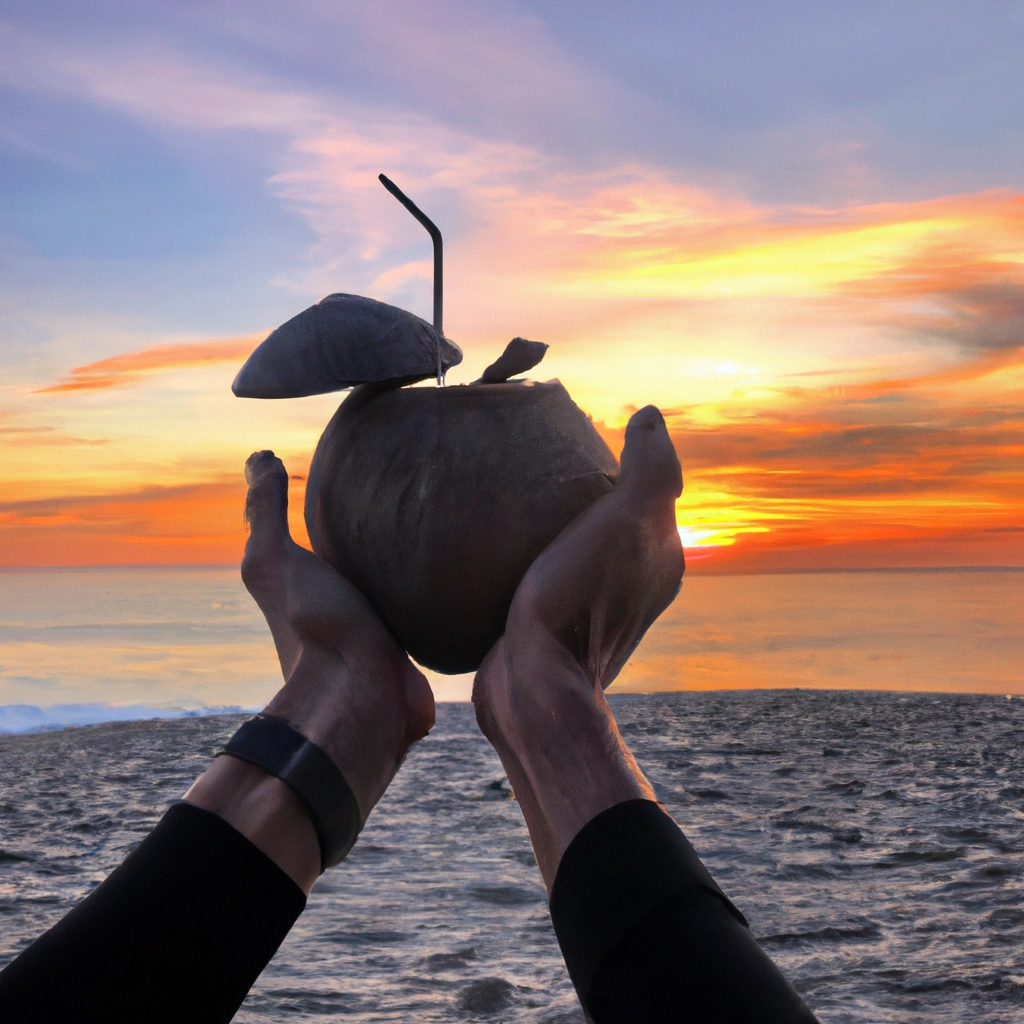

Increasing electrolyte intake while on a keto diet is important for maintaining proper mineral balance and preventing symptoms of electrolyte imbalance such as muscle cramps, fatigue, and headaches.
It is essential to consume foods rich in potassium, magnesium, and sodium to ensure adequate electrolyte intake while on a keto diet.
In addition to food sources, electrolyte supplements can also be helpful in meeting the body’s electrolyte needs while on a keto diet.
Check out this Youtube video: “The Ketogenic Diet and Electrolytes” for essential tips on increasing your electrolyte intake while on a keto diet!
Understanding Electrolytes and Their Importance on Keto
What are Electrolytes
- Electrolytes are minerals in your body that carry an electric charge. These include sodium, potassium, calcium, magnesium, chloride, phosphate, and bicarbonate.
The Role of Electrolytes on the Keto Diet
- On a keto diet, electrolytes play a crucial role in maintaining proper nerve and muscle function, regulating body fluid balance, and supporting overall health.
Why Increasing Electrolyte Intake is Important on Keto
- Increasing electrolyte intake on a keto diet is essential to prevent symptoms like muscle cramps, headaches, and fatigue, commonly known as the “keto flu,” and to maintain overall well-being.
- Adequate intake of sodium, potassium, and magnesium is vital to avoid electrolyte imbalances, especially during the initial stages of the keto diet.
| Electrolyte | Recommended Intake |
|---|---|
| Sodium | 3000–5000 mg/day |
| Potassium | 3000–4000 mg/day |
| Magnesium | 400–500 mg/day |
Remember, always consult with a healthcare professional before making significant changes to your diet, especially when following a specialized diet like keto.
Stay electrically charged while on keto!
Make sure your keto journey is electrifying by paying attention to your electrolyte intake. Your body will thank you!
Remember, when it comes to electrolytes on keto, it’s shocking how important they are. Don’t leave your body in the dark!
Common Electrolyte Imbalances on the Keto Diet
Dehydration
Dehydration on the keto diet occurs due to the reduced intake of carbohydrates, leading to a decrease in water retention and electrolyte loss, especially sodium. Signs include excessive thirst, muscle cramps, and headaches.
Rehydration can be achieved by consuming electrolyte-rich foods and beverages like bone broth and electrolyte supplements.
Sodium Deficiency
Transitioning to a ketogenic diet can cause sodium deficiency, leading to symptoms such as fatigue and compromised performance, especially in hot conditions. Combat sodium deficiency by consuming healthy salts like Himalayan pink salt or sea salt.
This helps replenish lost sodium and maintain electrolyte balance.
Potassium Deficiency
On a keto diet, there is a parallel loss of potassium when sodium levels deplete. Symptoms of potassium deficiency include weakness, muscle cramps, and constipation.
Including potassium-rich foods like avocado and leafy greens in your diet can help prevent and address potassium imbalance.
Magnesium Deficiency
Magnesium deficiency can lead to muscle cramps and other discomfort. Consuming magnesium-rich foods such as almonds, spinach, and dark chocolate can help maintain optimal magnesium levels on a keto diet.
Additionally, considering high-quality magnesium supplements may be beneficial to counter any deficiency.
How Can Someone Increase Their Electrolyte Intake While on a Keto Diet is Important
Importance of Hydration
Maintaining proper hydration levels is crucial on a keto diet due to the body’s altered water and electrolyte processing. Dehydration can lead to symptoms like increased thirst and headache, so it’s essential to consume adequate water and electrolytes.
Increasing Sodium Intake
On a keto diet, the body excretes more sodium, making it vital to actively increase sodium intake. Incorporating sodium-rich foods such as bacon, cheese, and olives can help maintain electrolyte balance and prevent potential symptoms of low sodium levels.
Consuming Foods Rich in Potassium
Including potassium-rich foods like avocados, spinach, and salmon in the keto diet is crucial for maintaining proper electrolyte levels. These foods help prevent conditions like hypokalemia, ensuring muscle function and overall well-being.
Incorporating Magnesium Supplements
Incorporating magnesium supplements can help compensate for the potential lack of this crucial electrolyte on a keto diet. Magnesium plays a vital role in muscle function and nerve transmission, making it essential for overall health.
Using Electrolyte Powders or Drinks
Electrolyte powders or drinks can be a convenient and effective way to ensure adequate electrolyte intake while on a keto diet. These products provide a quick and easy solution to replenish electrolytes and combat symptoms of imbalance.
Avoiding Overhydration
While maintaining proper hydration is important, overhydration can lead to electrolyte imbalance. It’s essential to strike a balance and be mindful of excessive water intake, especially when paired with electrolyte supplementation.
| Electrolyte-Rich Foods | Benefits |
|---|---|
| Avocados | Excellent source of potassium and healthy fats |
| Spinach | High potassium content, essential for muscle function |
| Salmon | Good source of potassium and omega-3 fatty acids |
| Magnesium Supplements | Aid in muscle function and nerve transmission |
| Electrolyte Powders | Quick and convenient replenishment of essential electrolytes |
| Sodium-Rich Foods | Crucial for maintaining electrolyte balance on a keto diet |
Prioritizing electrolyte intake while on a keto diet is crucial for overall well-being. By understanding the importance of hydration and incorporating specific foods and supplements, individuals can maintain a healthy balance of essential electrolytes, supporting their body’s optimal function.
Benefits of Proper Electrolyte Intake on the Keto Diet
| Electrolyte | Recommended Daily Intake |
|---|---|
| Sodium | 3000–5000 mg |
| Potassium | 3000–4000 mg |
| Magnesium | 2-3 g |
Improved Hydration: Proper electrolyte intake on a keto diet ensures enhanced hydration, aiding in the body’s water balance and overall hydration.
Prevention of Keto Flu: Adequate electrolyte intake can help prevent keto flu symptoms such as nausea, constipation, headaches, fatigue, and muscle cramps, offering a more comfortable transition into the keto lifestyle.
Maintaining Energy Levels: Electrolyte balance supports consistent energy levels, preventing fatigue and weakness, crucial for sustaining activity, and exercise requirements on a keto diet.
Supporting Muscle Function: Electrolytes, especially calcium and magnesium, play pivotal roles in regulating muscle contractions, maintaining optimal muscle function while on a keto diet.
Improving Overall Well-being: Proper electrolyte intake promotes overall well-being by aiding in the regulation of body processes, nerve impulses, muscle function, hydration, and pH levels.
Ensuring adequate intake of essential electrolytes-sodium, potassium, and magnesium-is crucial for improved hydration, prevention of keto flu, sustained energy levels, optimal muscle function, and overall well-being while following a keto diet.
Electrolyte-Rich Foods Suitable for the Keto Diet
| Foods | Electrolyte Content |
|---|---|
| Avocados | High in potassium |
| Spinach | Rich in magnesium |
| Nuts & Seeds | Good source of sodium and magnesium |
| Seafood | Rich in potassium and magnesium |
| Low-Carb Dairy Products | Contains calcium and magnesium |
Risks of Electrolyte Imbalance on the Keto Diet
Keto Flu
High levels of ketones in the body during the keto diet can lead to dehydration and electrolyte imbalances, causing what is commonly known as the “keto flu”. Symptoms may include fatigue, weakness, difficulty concentrating, headaches, nausea and vomiting, brain fog, and muscle cramps, emphasizing the significance of maintaining proper electrolyte levels.
Muscle Cramps
Electrolytes play a vital role in preventing muscle cramps, with low sodium levels often causing muscle cramps during the initial stages of the keto diet. Consuming foods rich in potassium, such as bananas and sweet potatoes, as well as magnesium and calcium, can help alleviate muscle cramps and maintain electrolyte balance.
Fatigue
An imbalance of electrolytes, particularly sodium, potassium, and magnesium, can lead to fatigue during the initial phases of the keto diet. It is crucial to address this issue by incorporating electrolyte-rich foods or supplements to combat fatigue and maintain energy levels.
Heart Palpitations
Dehydration and mineral deficiency due to reduced carbohydrate intake can result in heart palpitations when transitioning into ketosis from a carbohydrate-heavy diet. Electrolyte imbalances and dehydration, often stemming from reduced carbohydrate intake, play a significant role in causing heart palpitations during the initial stages of the keto diet.
Best Practices for Monitoring Electrolyte Levels on Keto
Tracking Water Intake
Tracking water intake is crucial for individuals on a keto diet. Since the body processes water and electrolytes differently in ketosis, maintaining proper hydration levels is essential. It is recommended to consume at least 2.7 to 3.7 liters of water per day for men and 2.7 liters for women. However, this can vary based on individual factors such as activity level, climate, and overall health.
Understanding Symptoms of Electrolyte Imbalance
Recognizing the symptoms of electrolyte imbalance is vital for keto dieters. Signs of an electrolyte deficiency include headaches, muscle cramping, fatigue, brain fog, increased cravings, thirst, diarrhea, and constipation. Being aware of these symptoms enables individuals to take corrective action promptly to rebalance their electrolytes.
Regular Blood Tests
Regular blood tests play a crucial role in monitoring electrolyte levels while on a keto diet. Routine testing of electrolytes, calcium, liver function, and lipid profile is recommended to ensure that the body is maintaining an optimal balance of essential minerals. These tests provide valuable insights into the impact of the keto diet on overall health and help identify any potential deficiencies.
Consulting with a Healthcare Professional
Seeking expert guidance by consulting with a healthcare professional is highly recommended for anyone following a keto diet. A healthcare professional can offer personalized advice based on an individual’s unique health status, ensuring a balanced approach to electrolyte management. Furthermore, they can interpret blood test results and provide targeted recommendations for optimizing electrolyte levels on the keto diet.
| Electrolyte | Recommended Daily Intake |
|---|---|
| Sodium | 2,300–2,500 mg |
| Potassium | 3,500–4,700 mg |
| Magnesium | 310–420 mg |
Paying close attention to water intake, being mindful of electrolyte imbalance symptoms, undergoing regular blood tests, and seeking professional guidance are the best practices for effectively monitoring electrolyte levels on a keto diet. By following these guidelines, individuals can maintain optimal electrolyte balance while reaping the benefits of the keto lifestyle.
All in all, maintaining electrolyte balance on a keto diet requires diligence, awareness, and proactive involvement in personal health management.
Electrolyte Supplements for the Keto Diet
Types of Electrolyte Supplements
There are various types of electrolyte supplements that can be beneficial for those on a keto diet. Some popular options include electrolyte powders, capsules, and gummies.
These supplements typically contain essential electrolytes such as sodium, potassium, magnesium, and calcium. Each type of supplement offers a convenient way to replenish electrolytes and combat the potential effects of electrolyte imbalance during ketosis.
Choosing the Right Supplement
Selecting the right electrolyte supplement for the keto diet is crucial. Consider products that offer a balanced blend of sodium, potassium, magnesium, and calcium.
It’s also important to look for supplements with minimal or zero added sugars and carbohydrates to align with the objectives of the ketogenic lifestyle. Additionally, opt for supplements from reputable brands known for their commitment to quality and safety.
Dosage Guidelines
When it comes to dosage, it’s essential to follow the recommended guidelines provided by the supplement manufacturer. The optimal dosage of electrolyte supplements may vary based on individual requirements and activity levels.
Pay attention to the instructions on the product label or consult with a healthcare professional to determine the appropriate dosage that aligns with your specific needs while on a keto diet.
Potential Interactions and Side Effects
It’s important to be aware of potential interactions and side effects associated with electrolyte supplements. While these supplements are generally safe for most individuals, excessive consumption may lead to adverse effects.
Common side effects may include digestive issues or allergic reactions. It’s crucial to monitor your body’s response and seek medical advice if you experience any unusual symptoms.
Additionally, be cautious when combining electrolyte supplements with other medications to avoid potential interactions.
| Electrolyte Supplement | Type | Key Features |
|---|---|---|
| Perfect Keto Daily Electrolytes Powder | Powder | Zero carbs, zero calories, and zero sugar |
| LMNT Recharge Electrolyte Drink Mix | Powder | Balanced blend of key electrolytes |
| Keto K1000 Electrolyte Powder | Powder | Editor’s choice with natural sea minerals |
Choosing the right type of electrolyte supplement, adhering to recommended dosages, and being mindful of potential interactions and side effects are essential considerations for individuals on a keto diet. By making informed choices, individuals can effectively increase their electrolyte intake and support their overall well-being while pursuing a ketogenic lifestyle.
Addressing Common Misconceptions about Electrolytes on Keto
Electrolytes and Water Retention
The relationship between electrolytes and water retention on a keto diet is crucial. Electrolytes, such as sodium, potassium, and magnesium, play a vital role in regulating fluid balance within the body.
When these electrolytes are imbalanced, it can lead to symptoms of water retention, including swelling and puffiness, especially in the extremities. This can be particularly relevant for individuals on a keto diet, as electrolyte imbalance can exacerbate the symptoms of the keto flu, such as dizziness, weakness, tiredness, and cramps.
Therefore, ensuring optimal electrolyte intake is essential to maintain proper fluid balance and minimize water retention while on a keto diet.
Electrolyte Supplements Are Always Necessary
While electrolyte supplements can be beneficial for individuals on a keto diet, they may not always be necessary. If an individual is very active or lacks potassium-rich foods in their diet, incorporating electrolyte supplements may be beneficial on an as-needed basis.
However, it’s important to emphasize that obtaining electrolytes from natural food sources should be the primary focus. Foods such as leafy greens, nuts, seeds, and avocados are rich in essential electrolytes and can be incorporated into a keto meal plan to fulfill the body’s requirements without solely relying on supplements.
Electrolyte Intake for Athletes on Keto
For athletes following a keto diet, the importance of electrolyte intake becomes amplified due to increased physical activity and potential sweating, leading to the loss of essential minerals. Athletes on keto may have higher sodium and potassium requirements to support their active lifestyle and replenish electrolytes lost during exercise.
Keeping a balance of electrolytes through dietary sources and carefully selected electrolyte supplements can aid in maintaining optimal performance and minimizing the risk of dehydration and muscle cramps during intense physical activity.
| Electrolyte | Daily Requirement on Keto Diet |
|---|---|
| Sodium | 3,000 – 7,000 mg |
| Potassium | 3,000 – 4,000 mg |
| Magnesium | 300 – 400 mg |
Addressing misconceptions about electrolytes on a keto diet is crucial for individuals to understand the significance of maintaining proper electrolyte balance to avoid water retention, support overall health, and optimize physical performance, especially for athletes on a ketogenic eating plan.
Tips for Proper Electrolyte Intake During Exercise on Keto
Hydration Strategies
- Keep hydrated with other liquids: In addition to water, consider low-sugar broths, juices, sports drinks, and popsicles to stay hydrated. These options can help replenish electrolytes lost during exercise without compromising your keto diet.
Electrolyte Replacement During Workouts
- Electrolyte-rich smoothies: Make a keto-friendly smoothie using electrolyte powder, fruits, and leafy greens to replenish electrolytes lost during workouts. Consuming this before or after exercising ensures proper electrolyte replacement without interrupting your keto regimen.
Post-Exercise Electrolyte Replenishment
- Use electrolyte supplements: If whole food changes are insufficient, consider using electrolyte supplements to ensure adequate replenishment post-exercise. Look for keto-approved supplements that align with your dietary restrictions.
The Role of Electrolytes in Achieving Ketosis
Electrolytes and Fat Adaptation
- Electrolyte Importance: During the initial phase of the keto diet, the body transitions from using carbohydrates as a primary energy source to using fats. This transition causes a rapid depletion of glycogen stores and a loss of electrolytes such as sodium, potassium, and magnesium.
- Symptoms and Solutions: Depletion of electrolytes can lead to symptoms like fatigue, headaches, and muscle cramps, commonly known as the “keto flu.” Consuming electrolyte-rich foods like avocados, spinach, and salmon can help replenish these essential minerals and alleviate these symptoms.
Balancing Electrolyte Intake with Macronutrients
- Role in Electrolyte Balance: It’s vital to maintain electrolyte balance while on a keto diet, especially due to the diuretic effect of ketosis, which leads to increased excretion of sodium, potassium, and magnesium.
- Dietary Strategies: Balancing electrolyte intake with macronutrients involves incorporating high-potassium foods like leafy greens, nuts, and seeds, along with adequate salt intake to support sodium levels and magnesium-rich foods like dark chocolate and nuts.
Electrolytes and Metabolic Health
- Impact on Metabolic Health: Electrolytes play a crucial role in maintaining proper metabolic function, particularly during the process of ketosis. As the body shifts to using fats as the primary fuel source, maintaining electrolyte balance is essential for energy production and overall metabolic health.
- Supplementation Consideration: In some cases, supplementation may be necessary to ensure adequate electrolyte levels, especially for individuals with certain medical conditions or during periods of increased physical activity.
| Electrolyte | Food Sources |
|---|---|
| Sodium | Olives, pickles, salted nuts |
| Potassium | Avocado, spinach, mushrooms, salmon |
| Magnesium | Almonds, pumpkin seeds, dark chocolate, spinach |
The Impact of Electrolyte Intake on Keto Weight Loss
Electrolytes and Water Weight
- Electrolytes, such as sodium and potassium, play a crucial role in regulating water balance within the body. Imbalances in electrolytes can lead to fluctuations in water weight, potentially causing bloating or water retention.
Electrolyte Balance and Fat Loss
- Maintaining proper electrolyte balance is essential for optimizing fat loss on a keto diet. When electrolyte levels are balanced, the body can effectively metabolize fats for energy, supporting the overall weight loss process.
Electrolyte Intake and Hunger Levels
- Adequate electrolyte intake on a keto diet can help reduce hunger levels. By ensuring proper electrolyte levels, particularly sodium and potassium, individuals may experience decreased appetite, further contributing to weight loss success.
Electrolyte Intake for Specific Keto Populations
Electrolyte Needs for Women on Keto
Women on a keto diet need to pay close attention to their electrolyte intake. The recommended daily intake for sodium is 3000-5000 mg, potassium is 3000-4000 mg, and magnesium is 300 MG. For women, it might be beneficial to incorporate electrolyte-rich foods into their diet, such as avocado, yogurt, and spinach.
Additionally, incorporating electrolyte supplements or consuming electrolyte-rich drinks can help maintain proper electrolyte balance, especially during menstruation, when electrolyte levels fluctuate.
Electrolyte Intake for Older Adults on Keto
Older adults on a keto diet may have different electrolyte needs due to age-related factors and the potential presence of chronic conditions. It’s important for older adults to focus on maintaining adequate sodium levels (3000-5000 mg) and incorporating potassium-rich foods like bananas, sweet potatoes, and tomatoes (3000-4000 mg).
Older adults may require more consistent monitoring of electrolyte levels and may benefit from consulting with a healthcare professional to determine the best supplementation approach.
Electrolytes and the Keto Diet for Athletes
Athletes following a keto diet have unique electrolyte needs due to increased physical activity and sweating. It’s crucial for athletes to ensure sufficient sodium intake (3000-5000 mg) for optimal performance and to prevent dehydration.
Moreover, potassium-rich foods such as coconut water, leafy greens, and fish (3000-4000 mg) can aid in maintaining electrolyte balance. Athletes should consider incorporating electrolyte supplements into their routine, especially before and after intense training sessions or competitions.
| Electrolyte | Recommended Daily Intake |
|---|---|
| Sodium | 3000-5000 mg |
| Potassium | 3000-4000 mg |
| Magnesium | 300 mg |
Understanding the specific electrolyte needs for different keto populations is essential for maintaining overall health and well-being. Proper electrolyte intake can help alleviate symptoms of keto flu and support optimal physical and mental performance.
Remember to consult with a healthcare professional before making significant changes to your diet or supplementation routine, and always prioritize whole foods sources of electrolytes for sustainable and balanced nutrition.
Recommended Amazon Products for Increasing Electrolyte Intake on a Keto Diet
Here’s a curated list of products that can help you increase your electrolyte intake while on a keto diet. These recommendations are based on their effectiveness, reviews, and compatibility with keto lifestyle.
Electrolyte Powder with Vitamin C & D
This electrolyte powder is specially formulated to replenish essential minerals and vitamins lost during a keto diet. It contains a blend of sodium, potassium, and magnesium, along with vitamin C and D for added immune support. This product is highly rated for its effectiveness in preventing dehydration and keto flu, making it an ideal choice for those on a keto diet. Check it out on Amazon!


Keto-Friendly Magnesium Supplement
This magnesium supplement is designed for those following a keto diet to address any potential magnesium deficiency. It provides a high level of bioavailable magnesium to support overall health and wellness. With excellent customer reviews, this product is a reliable choice for maintaining adequate magnesium levels while on keto. Check it out on Amazon!


Low-Carb Electrolyte Drink Mix
This low-carb electrolyte drink mix is a convenient way to increase electrolyte intake without added sugars or carbs. It offers a balanced blend of sodium, potassium, and other electrolytes to support hydration and prevent imbalances. Customers praise its great taste and effectiveness, making it a popular choice for keto enthusiasts. Check it out on Amazon!


Salt Substitute for Keto Cooking
This salt substitute is an excellent option for adding flavor and essential electrolytes to your keto-friendly meals. It provides a mix of potassium chloride and other minerals to replace traditional table salt. With positive reviews, this product is a perfect addition to a keto pantry for maintaining optimal sodium levels. Check it out on Amazon!


Sugar-Free Electrolyte Tablets
These sugar-free electrolyte tablets offer a convenient way to boost electrolyte levels on the go. They contain a blend of essential minerals in a convenient dissolvable tablet form, perfect for those with an active keto lifestyle. With positive feedback from users, these tablets are a practical choice for maintaining hydration and mineral balance. Check it out on Amazon!


Top Recommended Product for Increasing Electrolyte Intake on a Keto Diet
If you’re looking for the best solution for increasing electrolyte intake on a keto diet, we highly recommend Electrolyte Powder with Vitamin C & D. Here’s why:
| Pros | Cons |
|---|---|
| Specially formulated for keto diet | May have a strong taste for some |
| Includes essential vitamins | Higher price compared to basic electrolyte supplements |
| Highly effective in preventing keto flu | Not suitable for those with certain medical conditions |
| Great customer reviews |
Ready to improve your electrolyte intake on keto? Check out Electrolyte Powder with Vitamin C & D today for the best results!


Conclusion
Increasing electrolyte intake while on a keto diet is important for maintaining proper bodily function. By consuming foods rich in potassium, such as avocados and spinach, individuals can replenish electrolytes lost through ketosis and prevent deficiencies.
Additionally, incorporating magnesium-rich sources like nuts and seeds into the diet can further support electrolyte balance and overall health.
Furthermore, it is crucial to prioritize sodium intake while on a keto diet to maintain electrolyte equilibrium. Adding sea salt to meals and consuming salty broths or pickles can help replenish sodium stores and prevent imbalances.
Focusing on a well-rounded, nutrient-dense diet that includes a variety of electrolyte-rich foods is essential for supporting the body’s function and well-being while on a keto diet.















